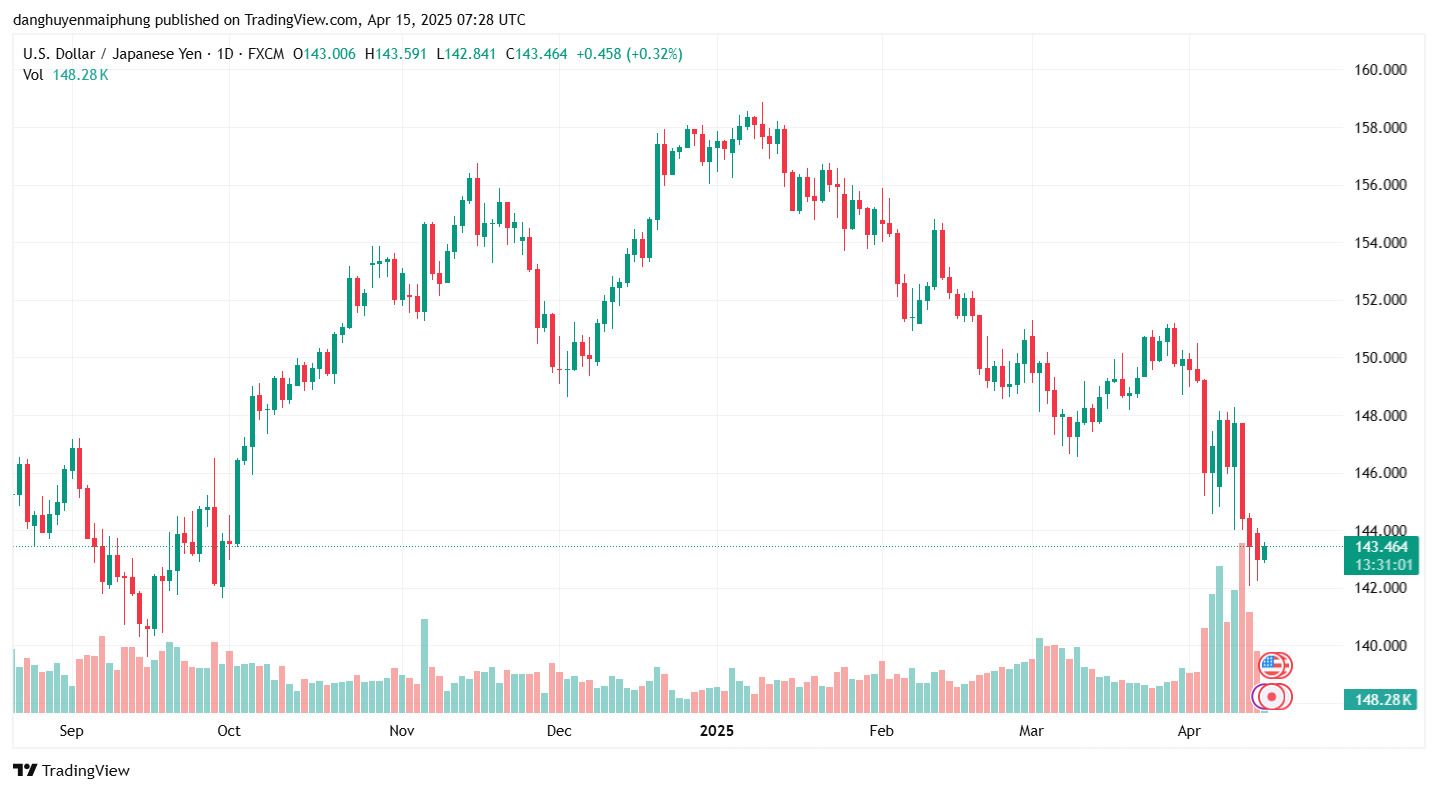The yen exchange rate today
As noted by labor, on April 15, the Japanese Yen (JPY) recorded a slight decline compared to the dollar. However, experts say that JPY's recovery potential is still intact, thanks to many important support factors.
The main reason why JPY temporarily weakened was due to the optimistic psychology in the market, after President Donald Trump declared a temporary exemption of tax for consumer electronics and considered tax exemptions for the automobile industry. These moves help soothe concerns about trade tensions, thereby reducing the need for safe assets such as yen.

The yen still has a lot of rooms to raise prices
However, according to FXstreet, long -term factors are beneficial for JPY. On the one hand, the US -China trade war still has a potential risk, which can affect global growth.
On the other hand, Japan is expected to reach a trade agreement with the US, which can bring advantage to the Yen. In addition, the Central Bank of Japan (BOJ) is still expected to raise interest rates in the near future, amid the rising price and wages in the country.
Meanwhile, the US Federal Reserve (Fed) is facing the pressure to cut interest rates due to slow concerns that the US economic is slowed down because of the tax policy.
President Trump recently threatened to impose taxes on semiconductors and imported pharmaceuticals, while maintaining a high tax rate for Chinese goods.
These statements make the market continue to worry about economic risks. Meanwhile, Fed officials admit that the current tax policy may force them to lower interest rates to avoid recession. However, the Fed could not act strongly due to inflationary pressure.
Although the expectation of Boj raising interest rates is somewhat slightly decreased due to the instability from the US, but in general, JPY still receives support from the domestic economic environment and the expectation of a US -Japan trade agreement.











